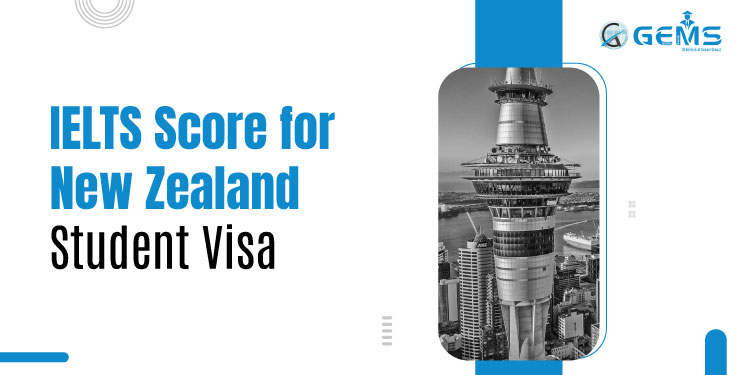The International English Language Testing System (IELTS) is a standardized test that measures English proficiency for non-native English speakers. It is widely recognized and accepted by universities and immigration authorities worldwide, including New Zealand. For students aspiring to study in New Zealand, obtaining the required IELTS score is crucial for securing a student visa.
Minimum IELTS score required for New Zealand student visa
The minimum IELTS score required for a New Zealand student visa varies depending on several factors, including the level of study, the English proficiency required for the course, and the type of visa applied for. Generally, a higher level of study or a course with a higher English proficiency requirement demands a higher IELTS score.
Understanding the IELTS score bands
Overall band score
The IELTS test consists of four sections: Listening, Reading, Writing, and Speaking. Each section is scored on a scale of 0 to 9, and the overall band score is the average of these four scores.
Individual band scores
In addition to the overall band score, test-takers receive individual band scores for each section, which indicates their proficiency level in specific language skills.
Factors affecting the required IELTS score
Several factors influence the required IELTS score for a New Zealand student visa application:
Level of study
Undergraduate programs may have lower English proficiency requirements compared to postgraduate or research programs.
English proficiency of the course
Some courses, especially those in fields like linguistics or literature, may require a higher level of English proficiency from applicants.
Visa type
Different types of visas, such as student visas for full-time study or exchange programs, may have varying English language requirements.
Tips to achieve the required IELTS score
Preparing for the IELTS test requires dedication and practice. Here are some tips to help you achieve your target score:
Preparation strategies
Develop a study plan and allocate time for each section of the test. Practice regularly and focus on improving your weaker areas.
Practice materials
Utilize official IELTS practice materials and sample tests to familiarize yourself with the test format and types of questions.
Mock tests
Take simulated IELTS tests under timed conditions to assess your progress and identify areas for improvement.
Importance of English proficiency beyond visa requirements
Beyond fulfilling visa requirements, having a good command of English is essential for academic success and social integration in New Zealand.
Academic success
Strong English skills are crucial for understanding lectures, participating in discussions, and writing assignments effectively.
Social integration
Being able to communicate fluently in English enhances your ability to connect with classmates, professors, and members of the local community.
Resources for improving English skills
If you need to improve your English skills, there are various resources available:
Language courses
Consider enrolling in English language courses, either in your home country or in New Zealand, to enhance your language proficiency.
Online platforms
Take advantage of online learning platforms and resources, such as language learning apps, websites, and forums.
Language exchange programs
Participating in language exchange programs allows you to practice English with native speakers while helping them learn your native language.
Common challenges faced by students in achieving the required IELTS score
Some common challenges students encounter when preparing for the IELTS test include time management, understanding complex vocabulary and grammar structures, and overcoming test anxiety.
Testimonials from successful visa applicants
Hearing success stories from students who have successfully obtained their New Zealand student visas can provide motivation and valuable insights into the application process.
Conclusion
Achieving the required IELTS score is a significant milestone for students planning to study in New Zealand. By understanding the scoring system, preparing effectively, and utilizing available resources, applicants can increase their chances of securing a student visa and thriving academically in New Zealand.



